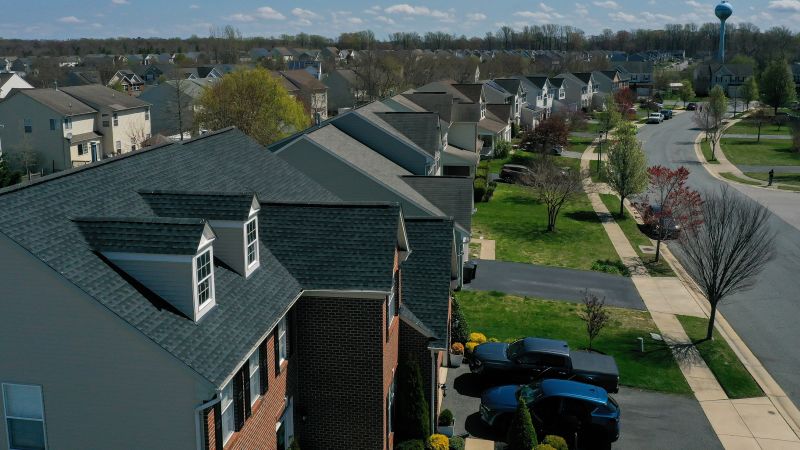The last time America’s housing market was this unaffordable, Ronald Reagan was in the White House.
It now takes nearly 41% of the median household’s monthly income to cover the principal and interest payments on a median-priced home, according to research from Intercontinental Exchange.
That’s the biggest chunk of paychecks since 1984, according to ICE, the owner of the New York Stock Exchange. That’s up 0.4% from last month’s report, which also showed America’s homes were at the least affordable level in 39 years.
The portion of households’ paychecks needed to pay for housing has surged in the past few decades. About 35 years ago, the average was less than 25%.
Wannabe homebuyers are getting hammered by a painful combination of high mortgage rates and high home prices.
That one-two punch has pushed the principal and interest payment needed to buy a median-priced home up by $144 over just the past month alone, according to ICE. For the first time, monthly payments are above $2,500 – and that doesn’t even include taxes, insurance or other fees.
“The situation was already dire,” Andy Walden, ICE’s vice president of enterprise research said in the report, adding that the recent jump in mortgage rates has made it even worse.
This problem is pushing the American dream further from reach for some prospective first-time homebuyers. They’ve been forced to rent instead, delaying their ability to build wealth through homeownership.
Turmoil in the bond market and the Federal Reserve’s war on inflation have driven up mortgage rates to levels unseen since 2000.
After seven consecutive weekly increases, the 30-year fixed rate mortgage dipped to an average of 7.76% in the week ending November 2, according to Freddie Mac.
That’s miles away from the pre-Covid rate of 3.8% in the fall of 2019. Aided by emergency action from the Fed, mortgage rates briefly tumbled below 2.7% in late 2020 and early 2021.
The higher mortgage rates go, the less home people can afford.
At today’s rates, monthly payments on a $500,000 home would stand at roughly $3,265 after putting 20% down.
That’s $1,165 more than two years ago, when mortgage rates were barely above 3%.
Despite high borrowing costs, home prices continue to rise amid a supply crunch.
US home prices climbed in August to a record high, marking the seventh straight month of increases, according to S&P CoreLogic Case-Shiller.
Of course, that’s good news for existing homeowners, assuming they don’t want to move.
It’s a key reason Americans’ net worth surged by a record 37% between 2019 and 2022, according to Fed data.
But some younger Americans who want to buy their first homes are on the outside looking in.
ICE notes that the last time housing affordability was this bad, the average home cost about 3.5 times median income. Today, that price-to-income ratio is much worse, at nearly six to one.
Read the full article here













Leave a Reply